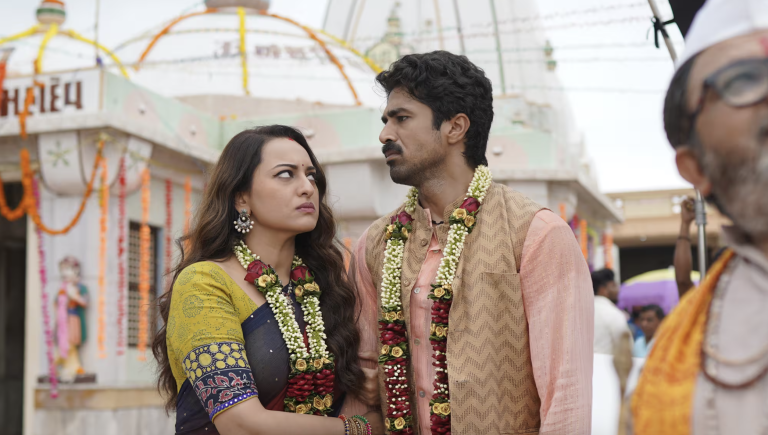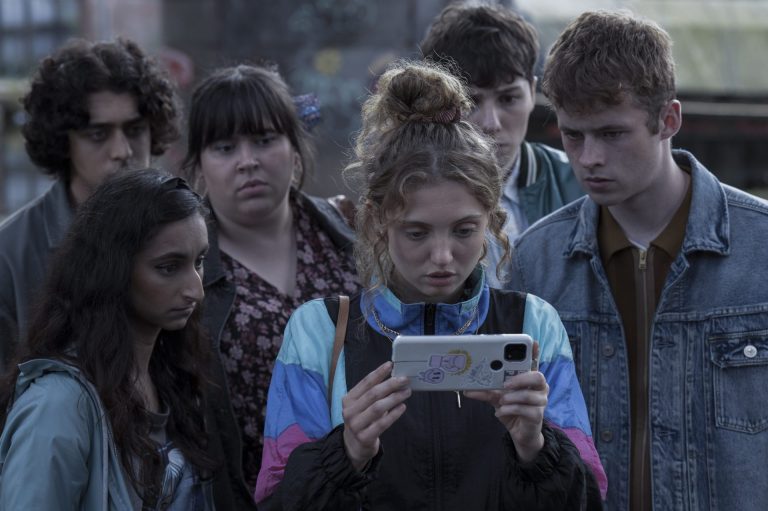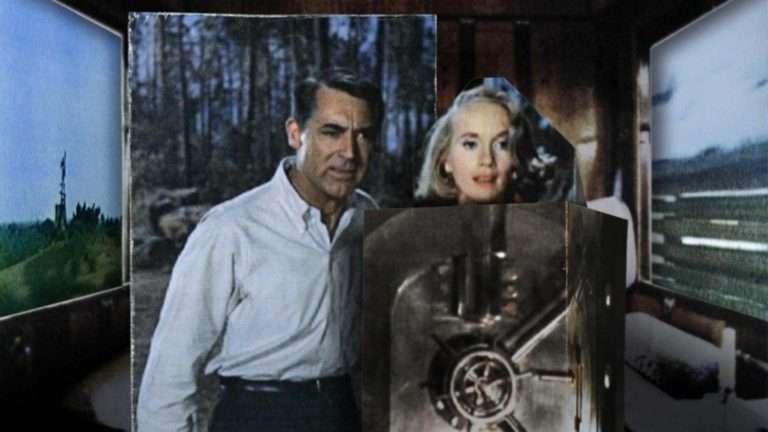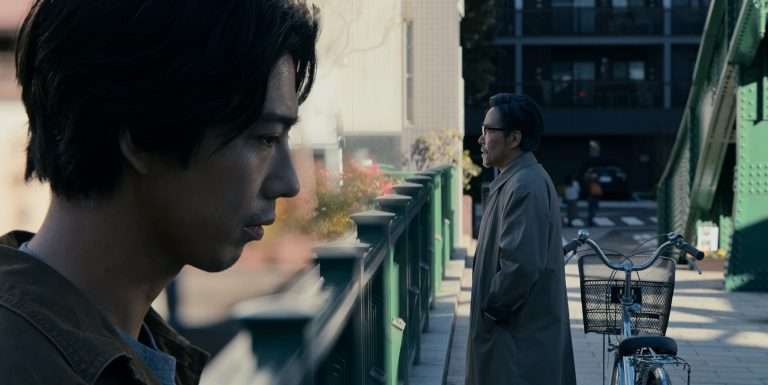A child’s mind is extraordinarily intricate. Kids tend to conclude situations according to the limited amount of knowledge and experience they’ve gained. The alleged correct path of thinking is generally unpredictable. However, some of their reasoning and thinking processes make us wonder about their curiosity and advancements. In The Stranger (Agantuk, 2023), Kajal acts as a microscope that focuses on each bewildering event that is sculpting his existence. The irony here is most of the incidents do not give him a definite answer. The staggering element that shines in this film is the varied exploration of sexuality.
The film focuses on Kajal, a kid who seems to be skipping school with a teenage boy named Jewel. Both individuals are busy exploring a quiet forest covered with abandoned buildings and various flora species. Kajal is hooked on the art of the ruins, looking at each of them precisely like a young Tim Burton. On the other hand, Jewel voices a far-fetched request to Kajal, disturbing Kajal’s peace of mind. The next thing we know, Kajal runs away from Jewel as fast as he can.
The film’s director, Biplob Sarkar, educates the audience on the complexities of sexuality from various perspectives. A touch of child sexual abuse is covered through Kajal’s encounter with Jewel. Director Biplob’s delicate screenplay showcases how Kajal exemplifies the younger generation’s lack of understanding of sexual misconduct. Kajal can nevertheless recognize the wickedness of being in such a defenseless position. In a different shade, the film delves into gender dysphoria among the younger generation.
Films like 20,000 Species of Bees by Estibaliz Urresola Solaguren and Little Girl by Sébastien Lifshitz have covered the aspect of identifying self-gender among kids these days. Kajal falls into the same scenario of identifying his true sexuality. A scene of Kajal cross-dressing as a girl with a hijab and a ‘Bindu” shows Kajal at his happiest in the narrative. However, Kajal’s mother quickly showered this so-called forbidden act with a slap as a warning. Most modern-day Asian parents’ admonitions to their children about appropriate behavior reveal a lack of familiarity with the concept of gender identity. Like every kid who gets punished, Kajal endures it silently.
The plights of every member of Kajal’s family reveal the mechanism of a dysfunctional family. Back at home, we see Kajal’s mother (Kahinoor) continuing her life without a proper objective. She seems immune to the bleak and mundane state of her life. She embodies a woman soaked in her own sorrows, which have made her lifeless. Director Biplob tries to make us connect with his film’s characters through their body language and eye contact. Sahana Rahman Sumi’s performance as Kahinoor, a character who expresses her depression through silence, is similar to Ratnabali Bhattacharjee’s in Abhiroop Basu’s short film ‘Meal. ‘
The viewers’ resonance with Kahinoor’s gloomy aura strengthens whenever she distances herself to be alone. At one point, Kahinoor silently breaks down without uttering a single word. Kajal understands it from afar. Kajal’s grandmother (Noorie) is displaying early signs of dementia and isn’t in her right state of mind. Her health status seems to deteriorate with respect to time as well.
However, Noorie is a sudden ‘announcer’ of all the hidden miseries and memories that have happened in Kajal’s family over the years. Noorie would voice out wailing in the form of a repeated sentence to let the viewers connect the dots of all their inner queries. The narrative doesn’t go full swing, and details in a similar way Alice Howland (played by Julianne Moore) portrayed dementia in the 2014 film ‘Still Alice.’ Noorie’s portrayal of dementia hits hard from the perspective of her abject loneliness despite living with family members.
One day, Javed’s (Kajal’s father) unexpected appearance at Kajal’s home alters everyone’s lives. Javed’s aura is similar to Kahinoor’s in terms of lifelessness, and pairing them does not contribute to compatibility or harmony. Intimacy seems to be forced upon his arrival, followed by a lack of communication between the couples. Biplob showcases the hollow attachments among married couples due to marital problems. Speaking of bonds, a special bond is seen between Javed and Kajal despite having a rough start initially. Javed seems to be accepting Kajal’s mischievous acts in a friendlier manner to connect with his son.
The inclusion of a fatherly figure in Kajal’s life bestows him with a newer outlook, which is covered with more outdoor activities. However, a disciplinary decision taken by his father damages the bond entirely. Here, the fragility of kids with parental and social issues is explored in detail. Focusing on the relationship between other family members, the distance that has been occupied between Kahinoor and Noorie is perceived through the way Kahinoor looks after Noorie at home. There isn’t much kindness in Kahinoor’s care, as seen during a bath session.
The detachment becomes even more profound when Noorie calls Kahinoor a witch and doesn’t want to stay in the house anymore. The question here is- Is Noorie blaming her son’s absence before on the shoulders of Kahinoor? Could that be a contributing factor to Kahinoor’s detachment towards Noorie? The answer is unknown. What’s known is that the attachment Noorie has with Kajal pops up through sudden advice at unexpected times. Despite having memory issues, Noorie still cares about her grandson deeply.
Cinematography by Mazaharul Razu perfectly enhances the cultural setting of a rural Bangladeshi household, which is vibrant in beauty. Kajal is very much the nucleus of the film; he seems to absorb everything that is happening around him. Director Biplob devises a novel approach to depict Kajal’s internal monologue by means of detailed graphics in the form of drawings. The collection of artworks represents Kajal’s ever-changing ideas following a similar approach by director Akshay Indikar in his 2020 film Sthalpuran.
These illustrations reflect different shades of Kajal, from happy memories and futuristic plans to even darker thoughts. In order to emphasize the core themes and plot points, many questions are interspersed throughout the film. Such questions are – How does the absence of a parent affect the thought process of the younger generation? Is one person’s happiness more significant than family unity when it comes to relationship gaps in a married couple? Does social stigma affect the acceptance rate of current younger generations suffering from gender dystopia? Why is there a negative perspective on men with traditionally feminine interests? Director Biplob answers them promptly through his visionary direction.
The Stranger won the Prasad Lab DI award at Film Bazaar 2022 and was nominated at the Busan Film Festival this year. It is a monumental and tender film that covers substantial elements of sexuality and attachments through inheritance, identity, acceptance, and awakenings. This film’s appeal stems from the many levels of meaning hidden behind its seemingly straightforward surface. Kajal, who has witnessed everything, might be a stranger in his own home after all. Like every other kid who undergoes gender dystopia, their pursuit of individual liberty is a definite answer that ultimately inspires them. It’s undeniably a cause for optimism.

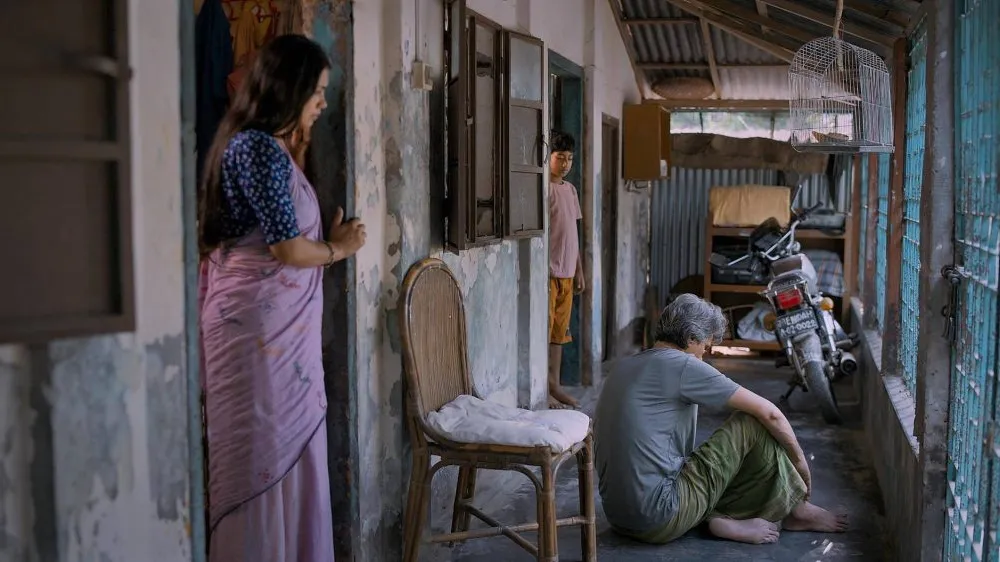
![Four to Dinner [2022] Review: Little makes sense in this confusing tale of finding a soulmate](https://79468c92.delivery.rocketcdn.me/wp-content/uploads/2022/01/Four-to-Dinner-1-768x512.jpg)

